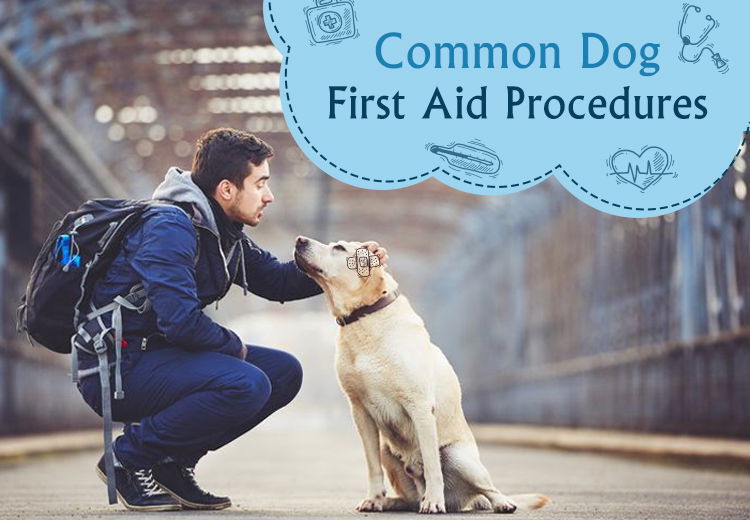 Jun 11, 2024
Jun 11, 2024

Emergency is every dog parent’s nightmare and the worst part is, it never comes with a prior notice. It is extremely crucial to make yourself prepared for any emergency so that you handle it appropriately. Making yourself aware of the first-aid procedures can help in tackling the situation more efficiently. First aid is the immediate care given to your pooch before you reach the veterinarian. In this blog, we will understand appropriate first-aid procedures for your dog but before proceeding further, let us first understand how to recognize a situation that needs first aid.
Every medical emergency whistles through relevant symptoms. It is important to recognize these symptoms to give appropriate first-aid to your dog. Listed below are some of the symptoms of an emergency that requires immediate first aid:
Now let’s understand basic first-aid procedures during different emergencies:
1. Excessive bleeding: There are two forms of bleeding that your dog can experience- internal and external bleeding.
Internal bleeding is extremely difficult to detect and can have symptoms like slow pulse, lethargy, difficulty breathing, etc. If you notice any of these signs, consult your vet immediately.When you see your dog bleeding excessively externally, put a clean cloth or gauze pad with firm pressure on the affected area, cover the wound with a bandage and consult a vet as soon as possible.
2. Choking: If you notice that your dog is choking because it swallowed something toxic mistakenly, stand behind them and place your hand just below their ribcage while applying pressure upwards. This will help unblock their airways and restore breathing. Take them to the vet if they are still finding it difficult to breathe.
3. Heatstroke: Heatstroke is extremely common in hot temperatures but it is important to keep your dog protected from extreme heat. During intense summers, your dog may experience a heatstroke when they are outdoors. In such a situation, they may experience breathing difficulty, excessive panting or drooling. During such an emergency, you should immediately turn on a fan or take them to a shaded area and pour some cool water on their body. If this does not provide them relief, visit a vet as soon as possible.
4. Seizures: Whenever you find your dog with symptoms like drooling, stiffening, muscle twitching etc., it might be an indication of seizures. During this time, try to keep your dog away from stairs or furniture to avoid any injury. Also, avoid touching your dog as they may harm you. Make sure you do not put anything in their mouth and avoid restraining them. Once the dog calms down, take them to the vet for proper medical care.
5. Fractures: The most awaited time of the day for your pet is their playtime. If your dog is aggressive during playtimes, it is prone to fractures or other skeletal injuries. Whenever you see them limping or find swelling on their limbs, focus on limiting their movement, make them sit in a relaxed position and take them to the vet as soon as possible.
Bottom Line
If you are a pet parent, it is important to make yourself well-equipped with dog first-aid procedures so that you can provide immediate care to your dog till you make it to the vet. Encountering a medical emergency is the biggest challenge for pet parents but rather than confusing it with a threat, you can work on learning a few simple first-aid techniques and save a precious life.